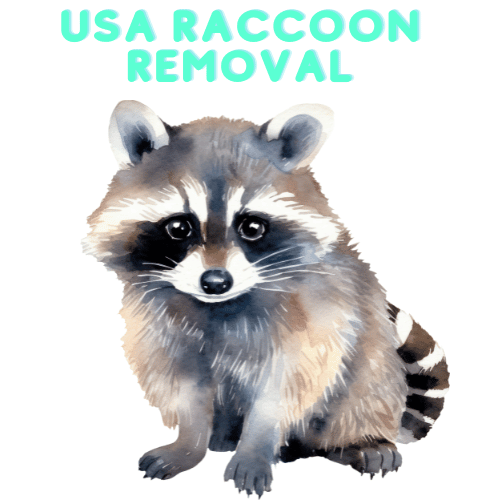Below is a list of frequently asked questions we receive the most when it comes to raccoon issues.
1. What are the signs of a raccoon infestation?
Signs of a raccoon infestation include loud noises coming from your attic or chimney, visible damage to your property such as torn insulation or shingles, and droppings around your home. Additionally, you may notice tracks or paw prints near potential entry points.
2. Are raccoons dangerous?
While raccoons are generally not aggressive towards humans, they can become defensive if they feel threatened or cornered. They are also carriers of diseases such as rabies and can transmit parasites like roundworms through their feces. If you suspect an infestation, it’s important to avoid contact with raccoons and seek professional removal services.
3. Why should I hire a professional raccoon removal company?
Professional raccoon removal companies have the expertise, experience, and specialized equipment necessary to safely and effectively remove raccoons from your property. Attempting to remove raccoons on your own can be dangerous and may not address the root cause of the infestation.
4. How do you remove raccoons from my property?
USA Raccoon Removal aligns itself with companies that use various humane and effective removal techniques tailored to your specific situation. This may include live trapping, exclusion methods to prevent re-entry, and habitat modification to deter raccoons from returning.
5. Is raccoon removal humane?
Yes, at USA Raccoon Removal, we prioritize the humane treatment of raccoons and adhere to strict ethical standards in our partner’s removal practices. They use non-lethal trapping methods whenever possible and strive to minimize animal stress and harm.
6. Will removing raccoons attract more to my property?
Proper removal techniques and exclusion methods to seal off entry points can significantly reduce the likelihood of future raccoon infestations. Our partner’s comprehensive approach addresses the current problem and helps prevent recurrence.
7. How long does the raccoon removal process take?
The duration of the removal process depends on various factors, including the size of the infestation and the complexity of the removal techniques required. During the initial consultation, our technicians will assess your situation and provide a timeframe for completion.
8. Are your removal methods safe for my family and pets?
Yes, our partner’s removal methods are designed to be safe for both humans and pets. They take all necessary precautions to minimize risks and ensure the well-being of everyone involved. Additionally, they use eco-friendly products and practices to minimize environmental impact.
9. Do you offer cleanup and restoration services after raccoon removal?
Yes, we offer comprehensive cleanup and restoration services to address any damage caused by raccoons and restore your property to its original condition. This may include sanitization, insulation replacement, and structural damage repairs.
10. How much does raccoon removal cost?
The cost of raccoon removal can vary depending on factors such as the infestation’s size, the removal process’s complexity, and any additional services required. Our partner’s offer competitive pricing and will provide you with a detailed estimate before beginning any work.
11. Do you offer ongoing maintenance to prevent future infestations?
Yes, we offer ongoing maintenance plans to help prevent future raccoon infestations. This may include regular inspections, maintenance of exclusion barriers, and recommendations for habitat modification to make your property less attractive to raccoons.
12. Can I try DIY methods before contacting a professional?
While some DIY methods, such as securing trash cans and eliminating food sources, can deter raccoons, they may not always be effective and can sometimes exacerbate the problem. We recommend contacting a professional raccoon removal company like USA Raccoon Removal for safe and reliable removal.
13. What should I do if I encounter a raccoon on my property?
If you encounter a raccoon on your property, keeping your distance and avoiding approaching or cornering the animal is best. Raccoons can become aggressive if they feel threatened. Contact a professional raccoon removal company immediately for assistance.
14. Are raccoons nocturnal?
Yes, raccoons are primarily nocturnal animals, meaning they are most active during the night. However, they may also be active during the day, especially in urban areas with plentiful food sources.
15. How can I prevent raccoons from returning to my property?
To prevent raccoons from returning to your property, eliminate food sources, secure trash cans, and seal off potential entry points such as gaps in your roof or foundation. Our technicians can provide personalized recommendations for keeping raccoons away for good.

